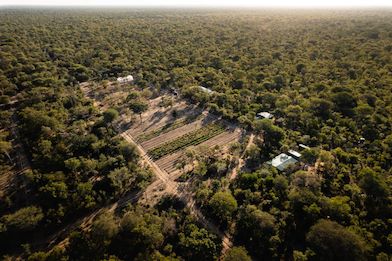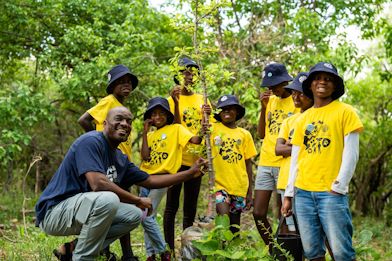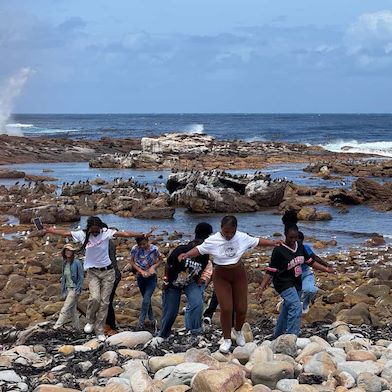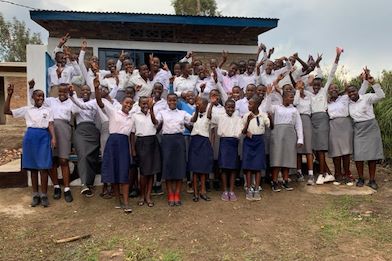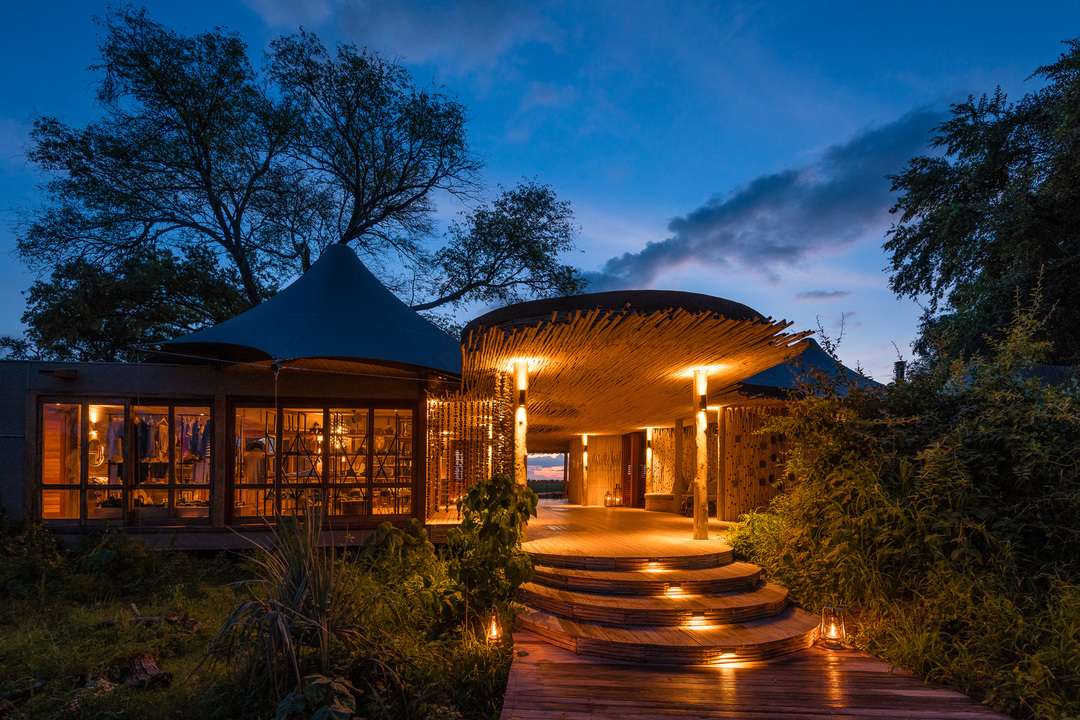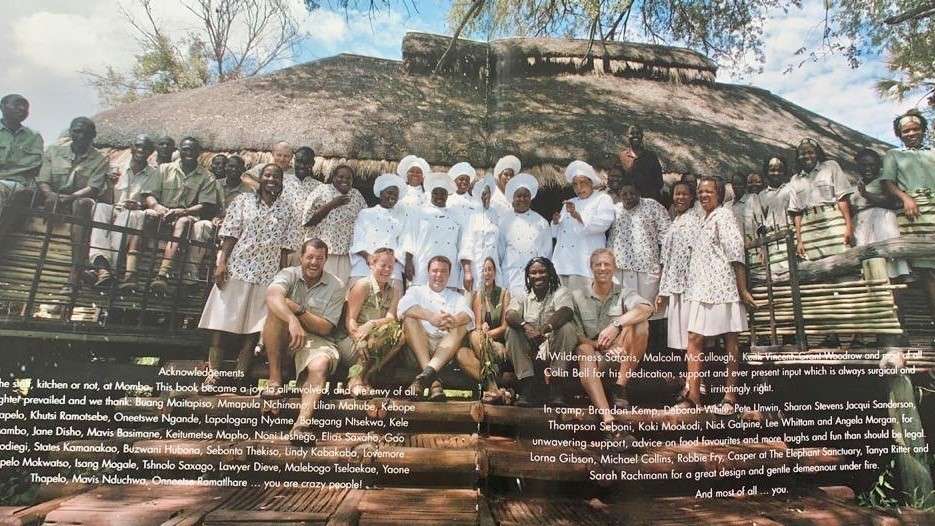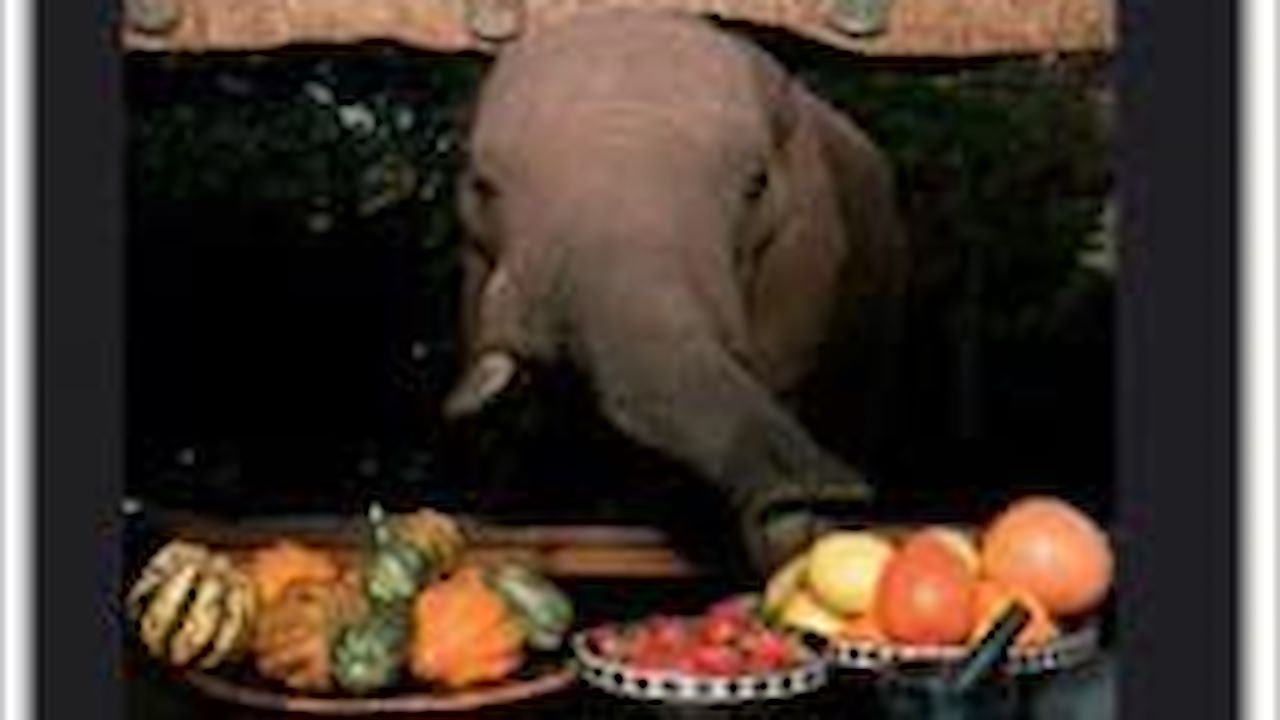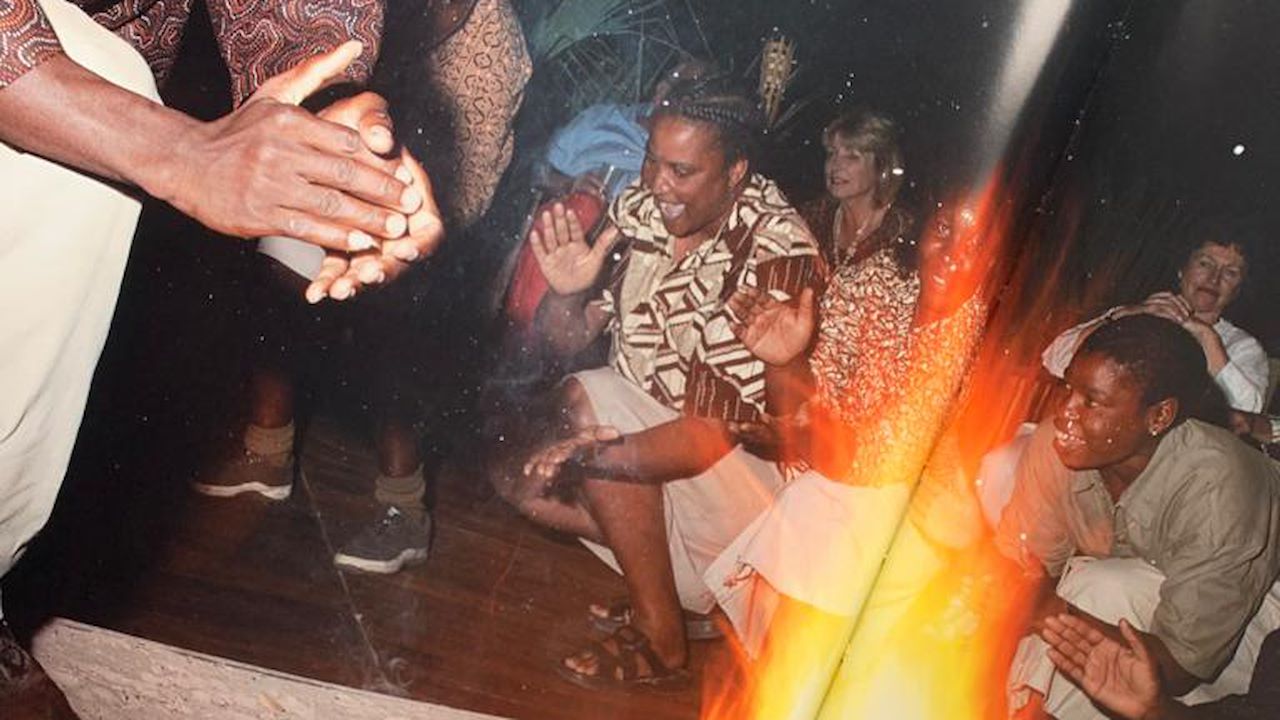Whenever possible, we made time to watch the sunset, an unwritten rule of being in the bush. At the lodge we’d gather for sundowner drinks on the deck by the bar overlooking the floodplains teeming with wildlife, or if possible, jump in a game drive vehicle and take a short ride out to the baobab tree for a mini sunset soirée.
At night, when the nightjars emerge from their daytime hiding places to hunt for insects in the moonlight, that is when the enchanting sounds of the African bush come alive. A constant cacophony of short, piercing, whistling sounds coming from the frog chorus amongst the reeds of the Okavango Delta, low-tone hippo grunts, high-pitched shrills of the epauletted fruit bats echoing from the trees, the cackling laughter of hyaenas, or even the distinctive roar of lions in the distance.
Every Monday evening Mombo added to that night chorus, for it was Boma Night, a night of music and dancing, a night the whole camp looked forward to.

The guests would be escorted to the Boma, which traditionally is a livestock enclosure, but out at the safari lodges, the circular arrangement of big, upright tree branches and timber latte poles provide the perfect area to congregate for evening celebrations. There, staff share their local traditions, culture, customs and music with the guests.
The flickering flames of the roaring firepit in the centre kept evening chills away whilst warming the skins of the drums that were tilted towards the heat. A long table with each place setting beautifully decorated for the diners, and the twinkling of the glass hurricane lanterns and candles matched the magnificence of the starry night sky above. This was the perfect setup for alfresco dining, safari style.
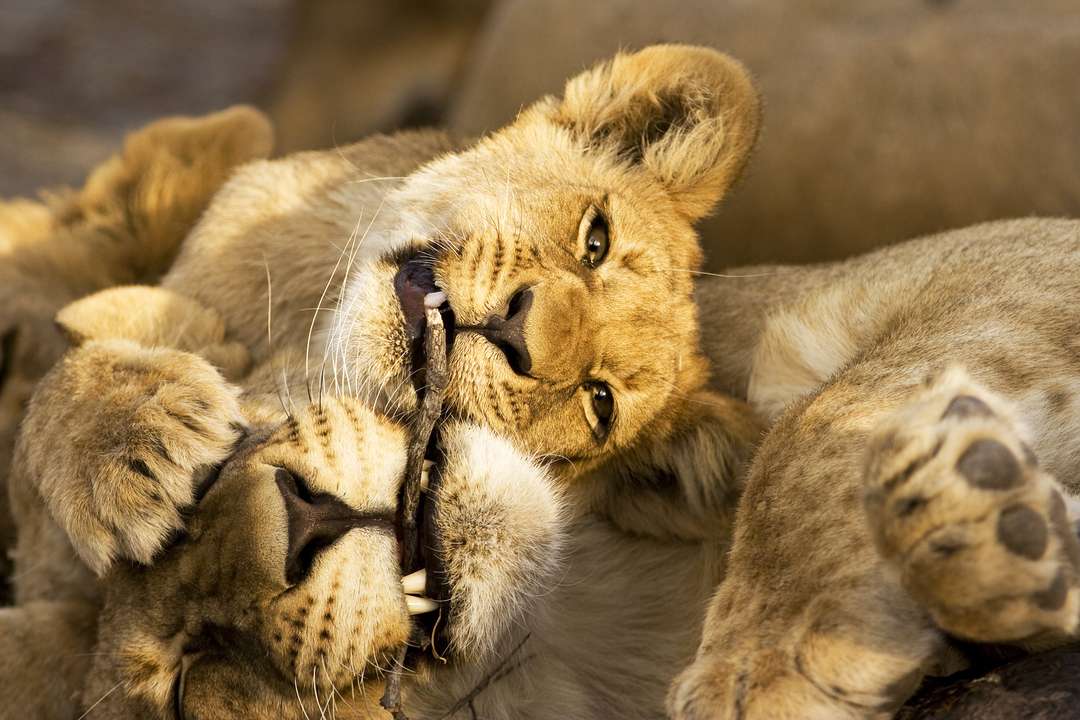
Before the cast-iron pots filled with sumptuous Setswana staples, which of course included seswaa and pap, were dished out, and once satisfied that the drum surfaces had reached optimal temperature, the Mombo staff gathered around the fire to deliver an incredible performance that was worthy of a Broadway production.
Traditional Setswana songs were performed a cappella style, with the rhythm provided by stamping feet, drums, clapping hands and the rustle of the shakers worn around the wrists and ankles of the musicians. Powerful, passionate singing projected across the fire filling the Boma, the wooden walls providing the perfect acoustics.
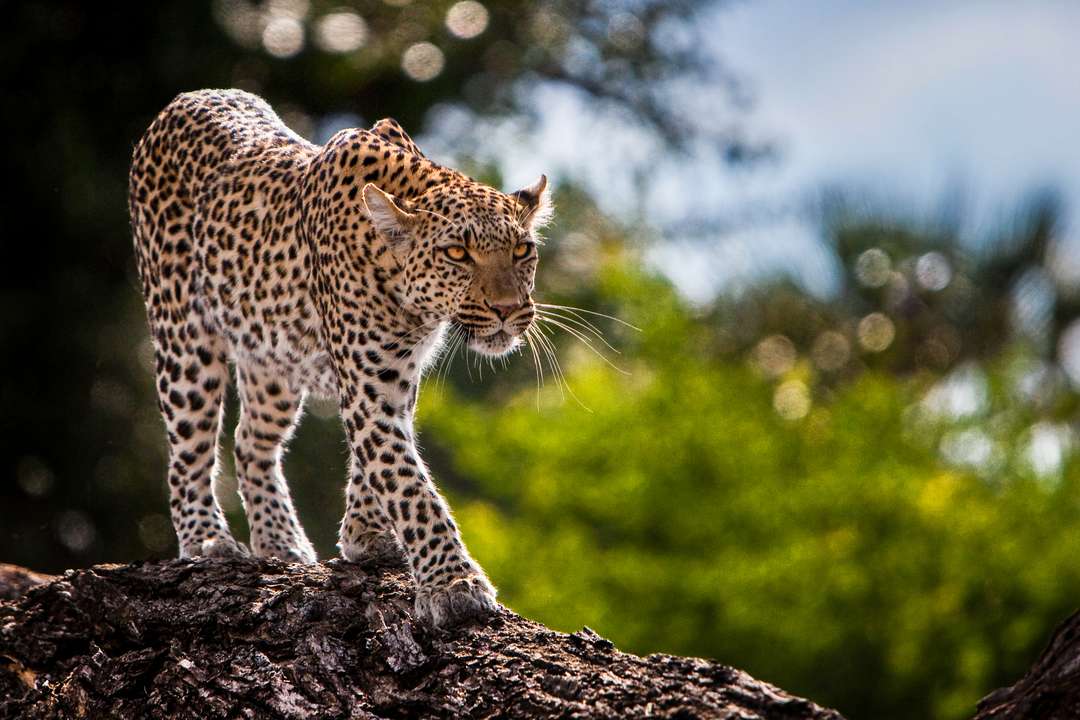
The joyous song ‘Dipoo’ would usually be sung at the start. I love the translation of the lyrics which fitted perfectly as mellifluous, sonorous sounds filled the African air: ‘If you are proud of yourself, make your own sound. A bull makes its own sound. A lion makes its own sound. If you are proud, make your own sound’.
As the tempo of the songs picked up so did the pace of the dance performances, which often became somewhat boisterous. Many moves imitating the actions of African wildlife were played out: leopard-like stalking, ostrich tail-feather-shaking around the fire and even the re-enactment of lions hunting prey, with some performers jumping through the flames.
The sweet sounds of the singers, their rhythmic melodies and beautiful ballads worked in perfect harmony with the night noises of the surrounding Delta nature. Every now and again the singers would add one of our names into a song. I’m not sure if the guests ever picked up on that, but when it happened, it really was so special to feel as if a choir of 30 plus people were singing just to you!
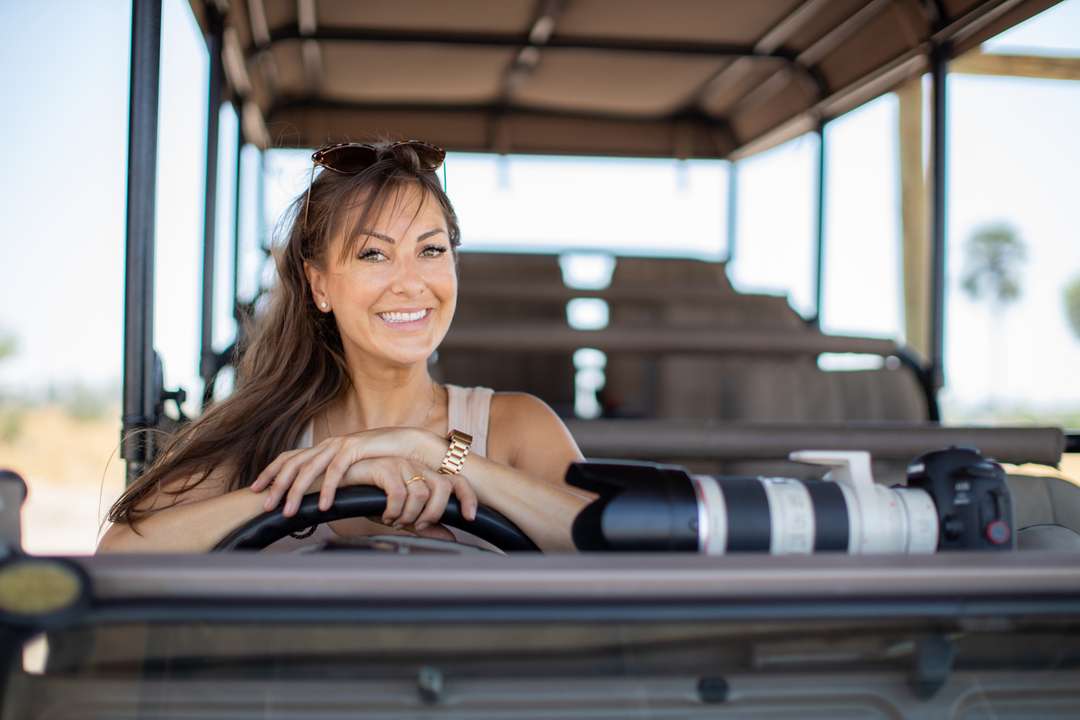
Juilet Lemon pictured on safari
My all-time favourite Setswana song is ‘Machikilane’, a song about a night watchman. It wasn’t on the choir’s regular song list so I’d always (and still do to this day) put in a request for it. ‘Machikilane wa lelope wa lelope machikilane’, is sung in a high pitch, accompanied by the tenors and their booming bassline-backing-vocals blasting out ‘wa lelope, wa lelope, wa lelope’.
Of course, no Boma night would be complete without one of the final songs starring the harmonious ‘Beautiful Botswana’, when the choir cleverly alter some verses to sing ‘Mombo’ instead of ‘Botswana’. Their lyrics ‘We shall never forget beautiful Mombo’ remain true to this day.
